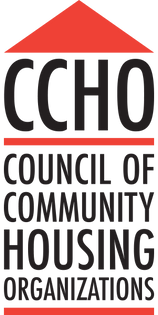“Inclusionary Housing: More for the Many, Not Just the Few”
SF Examiner, February 28, 2016
This Tuesday, the Board of Supervisors is poised to put a very important measure before the voters on this coming June’s ballot. If they vote yes, which seems likely, it will be one small step for the Board, one giant step for San Franciscans.
You see, our city’s “Inclusionary Housing” policy — which requires market-rate developers to build mixed-income communities by providing a portion of their housing units at below-market rates (actually affordable prices) — has been locked up in the City Charter since 2012. This was bad policy from the get-go and has meant that as development has boomed and housing prices have skyrocketed, our elected leaders have been unable to make adjustments to the inclusionary housing policy to keep up with that boom economy.
If the Inclusionary Charter Amendment is successfully voted through this Tuesday by the Board of Supervisors, San Franciscans will be able to un-lock the inclusionary policy from the Charter and bring it back into the citizen process. This is widely agreed to be a “good government” decision, putting the process of hammering out the details of policy back in the hands of our elected lawmakers, who can move quickly to respond to public need and financial reality, instead of requiring prohibitively expensive and time-consuming electoral campaigns through “ballot-box planning.”
Beyond being good government, this measure is a serious opportunity to increase affordability in San Francisco. The measure will initially double the number of affordable units a developement is required to provide, by going back to the 15 percent low-income units required before 2012, and adding a new 10 percent of units affordable to middle-income San Franciscans. That initial requirement can then be adjusted by the Board of Supervisors as needed as market conditions change over time. In fact, it is the anticipation of the ballot measure itself that the Board will craft fine-grained implementing legislation if the measure is passed by the voters in June.
The ballot measure will do two hugely important things: 1) set a higher bar for private development and ensure that projects contribute their fair share to housing our city’s residents during boom times; and 2) create affordable housing for the increasingly wide range of people who find themselves unable to afford living in San Francisco. In fact, inclusionary housing is one of the best tools we have to build housing for middle-income San Franciscans, as market-rate development investors have abdicated their traditional role of building housing for the middle classes, and there are no public subsidies available to help build affordable housing at those income levels. Instead of pitting low-income and middle-income housing needs against each other, this measure addresses BOTH needs.
In this way, the Charter Amendment accomplishes the real goal of inclusionary housing: Inclusion. As a resident who spoke during the three hours of public testimony at the Board of Supervisors hearing this past week put it, this measure will help ensure more San Franciscans have the opportunity “… to be part of the fortunate MANY, not the fortunate few.” Another resident eloquently told the Supervisors: “Now is your opportunity to vote for inclusion. … This is your time to be a hero.”
On Tuesday, the Board of Supervisors can all be heroes and move this important measure forward to the San Francisco voters.
Peter Cohen and Fernando Martí are co-directors of San Francisco’s Council of Community Housing Organizations.
